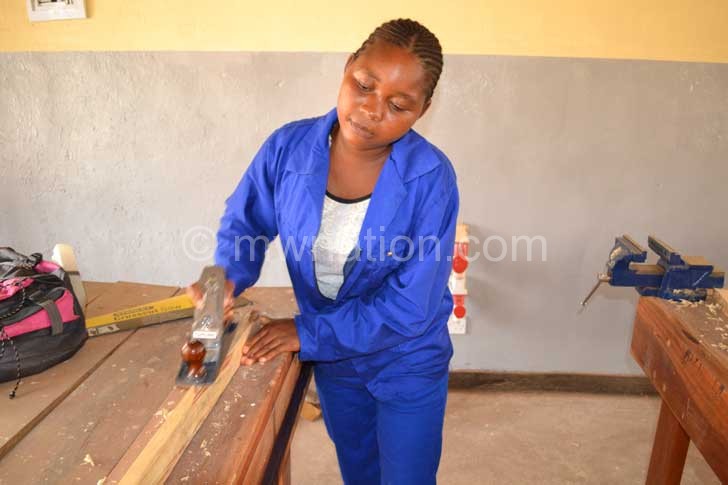Community colleges giving hope to youths
Last year, Patricia Mkwanda, 22, was living with her parents and had given up on ever finding a job, having finished her secondary school education in 2012.
It was only after her elder sister informed her about an advert for training courses she had seen, and asked her to apply for one of them, that she became hopeful for a better future.

She applied for one course and later attended interviews. To her great joy, she was picked.
“In retrospect, I think it is good that my fiancé and I broke up,” Mkwanda said. “I would not be on this course.”
Mkwanda is one of 89 youth from Phalombe who have taken up vocational courses at Naminjiwa Community Technical College (CTC) in the district.
The college is one of the 11 that government has so far opened nationwide in the first phase of the CTC programme, a brainchild of President Peter Mutharika.
The CTC programme aims at increasing access to Technical, Entrepreneurial and Vocational Education and Training (Tevet). Seventeen more colleges are set to open in phase two, bringing the total to 28.
With just seven national technical colleges, Malawi is said to have the least number of people accessing Tevet in the Southern African Development Community (Sadc) region.
The programme is expected to offer job skills to an estimated 50 000 youths who pass the Malawi School Certificate of Education (MSCE) examinations each year but fail to go to university.
Ministry of Labour, Youth and Manpower Development is implementing the programme with technical support from Tevet Authority (Teveta). The initiative will eventually roll out in the country’s 193 constituencies.
Mutharika said the programme was particularly important because it will help address employment and poverty issues.
“Malawi is still struggling to develop and break the various cycles of endemic poverty,” he said when he launched the programme in Karonga in March.
Said Mutharika: “CTCs provide communities with a way out of boredom and aimless idling for young men and women who have finished school but were unable to get into university.”
One of the programme’s institutions which is attracting youth is Naminjiwa CTC, formerly a residential agricultural training centre which has since undergone extensive refurbishment.
“I am glad I was selected,” said Wisdom Banda, 29, studying tailoring and design. “If I had not come here, I don’t know what would have become of me.”
Banda said when he learnt about an advert for vocational training at the college, he applied instantly and chose tailoring and design after being inspired by a friend of his “who is a successful tailor”.
The college offers five courses—carpentry and joinery, tailoring and design, brick-laying, fabrication and welding, and plumbing.
Benson Mbando, Naminjiwa CTC principal, said the college had started well, despite a few problems such as shortage of teaching and learning materials.
“But in terms of developing interest among students,” Mbando said, “they are all willing to acquire skills. And my other observation is that the college has been well received in the district.”
Mkwanda said she is happy to be studying carpentry and joinery, which is normally considered a man’s field.
“I encourage other girls to take up vocational jobs,” she said. “They should not be scared. What men can do, we also can. We can even perform better than men.”
Asked what she planned to do on completion of her two-year course, Mkwanda said: “Be my own boss and employ others.”





